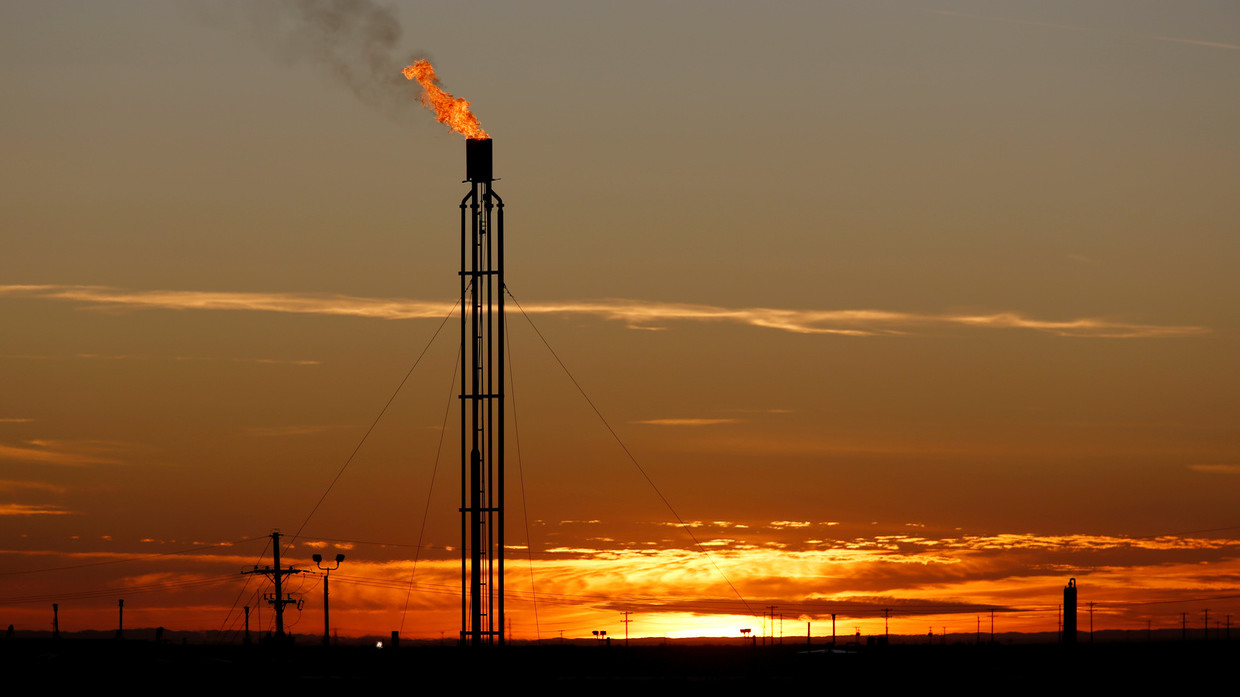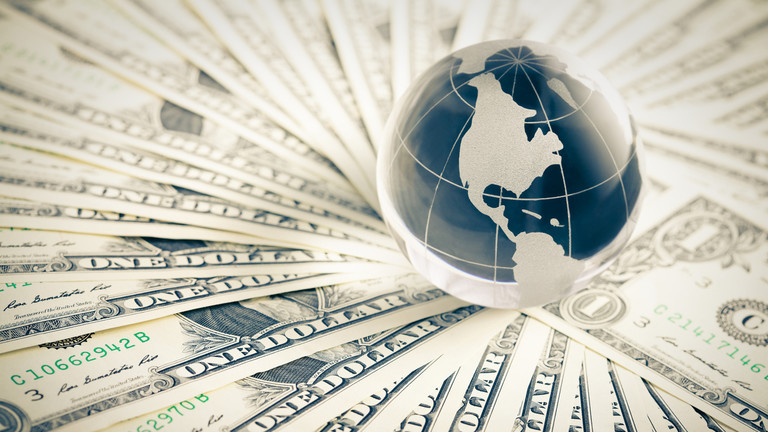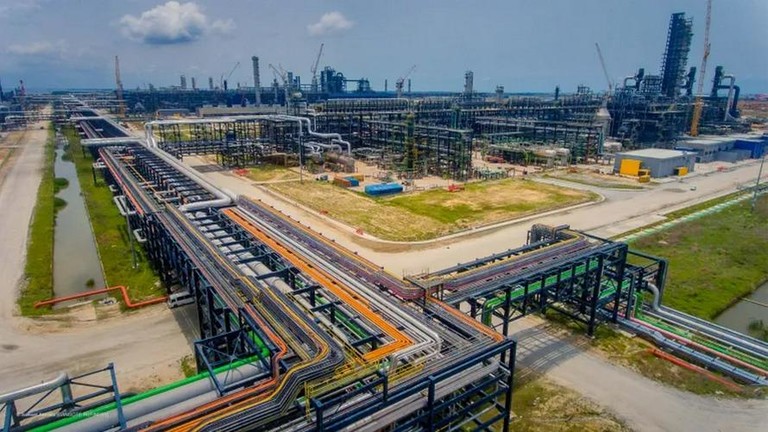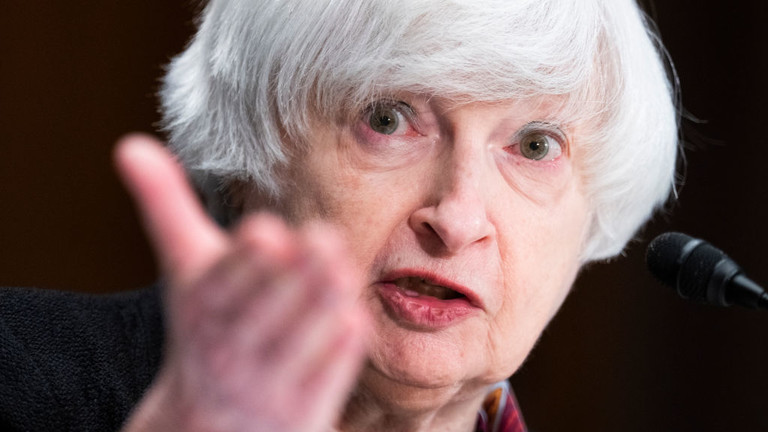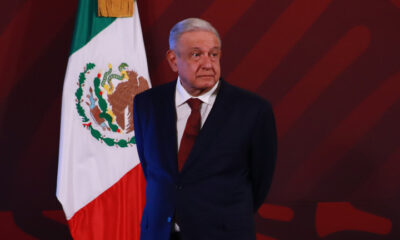With its abundance of unconventional natural gas, the US has been a net exporter since 2017. It wants to sell much more liquefied natural gas (LNG) to Europe, but here’s the problem: Russia dominates that market. What’s next?
Donald Trump’s pitch to the American people is that the United States would become a dominant energy source – that the country would feed its own needs and then export its unconventional shale oil and gas around the world. But the president’s vision has hit some roadblocks: for starters, Russia’s Gazprom already has deep footprints in Europe and is developing a pipeline that will allow it to double its current capacity – a delivery mechanism that’s cheaper than freezing the gas and shipping it. At the moment, though, there’s a gas glut and a withering market for the fuel.
“LNG demand is weak right now,” said Neil Chatterjee, chair of the Federal Energy Regulatory Commission, in a conference call hosted by the Atlantic Council this week. American “companies are trying to secure long-term contracts and the US is now a net exporter of energy. This has positive benefits economically and geopolitically: it’s an alternative to Russia and it is beneficial to our allies. A resurgence of demand will come.”
But sinking demand is creating uncertainty among LNG producers. And the same jitters apply to Gazprom. While Russia supplies 39 percent of Europe’s natural gas, the continent has alternative suppliers – Norway, Algeria, Qatar and Nigeria – and they provided about 5 percent more from 2018 through the first half of 2019, says Eurostat. The US is also providing 3.4 percent to a market it thinks can be cracked wide open: a third of all its LNG went to the European Union between January and November 2019, the European Commission says.
The Trump administration is arguing that it’s in Europe’s interest to diversify its natural-gas mix – that the competition will force Russia to reduce its prices and make concessions. To that end, the US has tried to stifle Nord Stream 2, the US$10.5 billion pipeline that stretches 745 miles from the Russian gas fields to Germany’s Baltic coast. It’s currently running two years behind schedule, although it could be completed in 2021.
Gazprom is forecasting a steady uptick in the amount of natural gas it now supplies Europe, but the International Energy Agency thinks it might drop a bit, to 33-36 percent of that market.
Playing politics
The Russians say the Americans are playing politics. And the European Union is backing them up. Nord Stream 2 is running late – in part, because the US imposed trade sanctions on Russia in December 2019 to force Europe into buying American. It also means that any third-party supplier or financier has the potential to get squeezed by sanctions. So, Russia is having to go it alone, but US officials say it lacks the technology to complete the job.
“President Putin is furious about Nord Stream 2,” says Angela Stent, a senior fellow at the Brookings Institution, in a conference call with RT. “The Russians see US shale as a major competitor.” German Chancellor Angela Merkel is also critical of the sanctions, saying they have an “extraterritorial effect” that would impact the German utility company Uniper, which is helping to finance the pipeline. It could also affect Shell, OMV and ENGIE, which have money on the table.
The biggest European markets for the US are the UK, Spain and France. But Germany is the most lucrative catch – a country that’s in the process of shutting down all its nuclear and coal plants. It has a goal of replacing much of that energy with renewables. Before that can happen, however, it will look to natural gas to fill the void. Even after that, natural gas will play a major role in its electricity portfolio because it will be needed to back up wind and solar power when the weather does not play ball.
Germany imported nearly US$15 billion-worth of natural gas in 2019. But it has paid 40 percent less in 2020, according to its Federal Office for Economic Affairs and Export Control. Still, if the US wants a cut of that, it has to get its cost down. Right now, by the time natural gas is liquefied, frozen and shipped to Europe, it will run for US$3 to US$4 per million Btus (or British thermal unit – that is, the unit of measurement for energy) , according to ShareholdersUnite.com. And Russia can pipe it in there for less than US$3.
The coronavirus is a dark cloud over the entire market. Before the pandemic struck, Europe had been expanding its LNG import terminals, and the US had approved a dozen export terminals, on top of the five now operating. Lower demand, in combination with excess supplies, is making natural-gas prices cheaper than ever. And that stings both Gazprom and US LNG exporters.
“One of the things we did in the LNG space was to approve 12 LNG export facilities in the last year,” says Chatterjee, of the work done by the Federal Energy Regulatory Commission.
Europe will no doubt benefit from the competition. But the US is not going to gain new markets by bullying Russia and trying to block its Nord Stream 2 pipeline. To win, the Americans must do it the old-fashioned way: create a better product at a cheaper price. And for now, that’s a tough task.
Think your friends would be interested? Share this story!

 FINANCE12 months ago
FINANCE12 months ago
 LIFE12 months ago
LIFE12 months ago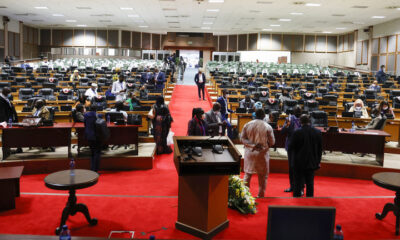
 NEWS12 months ago
NEWS12 months ago
 FINANCE12 months ago
FINANCE12 months ago
 FINANCE12 months ago
FINANCE12 months ago
 WAR12 months ago
WAR12 months ago
 NEWS12 months ago
NEWS12 months ago
 NEWS12 months ago
NEWS12 months ago

